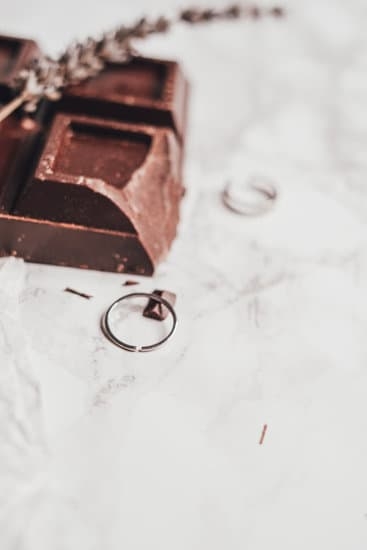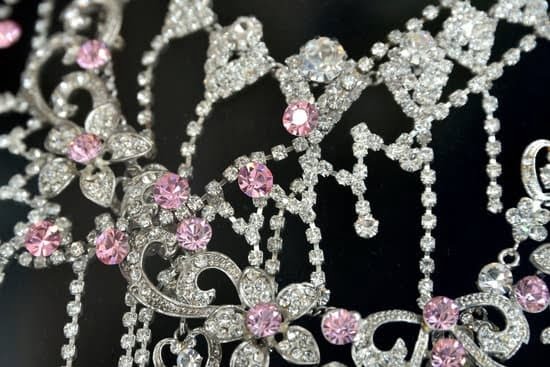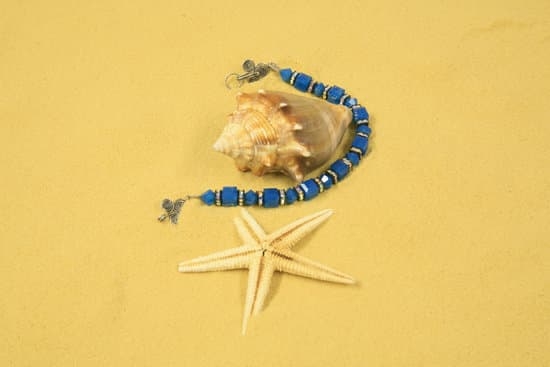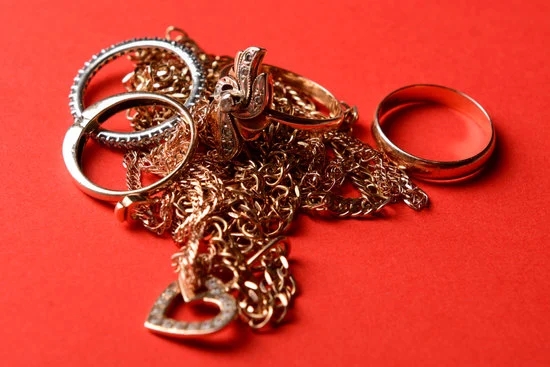The history of onyx jewelry dates back thousands of years, with its origins rooted in ancient civilizations and cultures. Onyx has been prized for its unique beauty and has held a special significance in various societies around the world. From its cultural importance to its role in modern jewelry making, the story of onyx is one that spans centuries.
Onyx, a type of chalcedony quartz, is known for its striking black color and smooth texture, making it a popular choice for jewelry throughout history. Its deep black hue has made it a symbol of power, protection, and strength, leading to its use in amulets and talismans by different cultures.
The extraction and mining of onyx have played a crucial role in bringing this stunning stone into the world of jewelry making. From ancient times to now, the process of obtaining onyx from the earth has remained an integral part of its journey from mine to market. In this article, we will explore the fascinating history and cultural significance of onyx jewelry, as well as provide valuable insights into the symbolism, care, and future trends associated with this timeless gemstone.
The Origin and Cultural Significance of Onyx
Onyx is a type of chalcedony, which is a variety of quartz. It has been used in jewelry making for centuries and holds great cultural significance in various civilizations around the world. The name “onyx” is derived from the Greek word “onux,” which means “claw” or “fingernail.” This is in reference to the flesh-toned and white alternating layers that are commonly found in onyx stones.
The use of onyx can be traced back to ancient Egypt, where it was widely used for carving amulets, beads, and other decorative items. The Egyptians believed that onyx had protective powers and could ward off evil spirits. Similarly, the Romans also prized onyx for its supposed magical properties, often carving it into signet rings and cameos. In India, onyx is associated with the god Saturn and is believed to bring spiritual inspiration.
In addition to its mystical and metaphysical properties, onyx also has practical uses in various cultures. It has been historically used for creating pottery, bowls, and other ceremonial objects. Its distinct black coloration made it highly sought after for use in creating intricate designs and patterns in jewelry pieces. The history of onyx jewelry spans across different continents and has played a significant role in shaping the cultural narratives of many societies throughout history.
Onyx Mining and Extraction
Onyx, a beautiful and timeless gemstone, has been prized for its unique beauty and durability for centuries. One of the most important aspects of onyx jewelry is the mining and extraction process that brings this stunning stone from the earth to the jeweler’s bench. Let’s take a closer look at how onyx is mined and extracted.
Onyx Deposits
Onyx is a type of chalcedony that is formed in the gas cavities of lava. It can also be found in sedimentary rocks as a result of water dissolving existing limestone and redepositing it as new stone. Onyx deposits are typically found in countries such as Brazil, India, Madagascar, Mexico, Peru, and Tanzania.
Mining Process
The mining process for onyx can vary depending on the location of the deposits. In some cases, open-pit mining may be used to extract onyx from shallow deposits near the surface. However, in other instances, underground mining methods may be necessary to reach deeper onyx deposits.
Extraction and Processing
Once the onyx has been mined, it must undergo extraction and processing to prepare it for use in jewelry. This involves cutting blocks of onyx into smaller slabs or rough pieces before they are meticulously cut and polished to bring out their natural beauty. The process requires skill and precision to ensure that the unique patterns and colors within each piece of onyx are carefully preserved.
Understanding the history of onyx jewelry would not be complete without delving into its fascinating mining and extraction process. From its natural formation within the earth to its careful extraction and processing by skilled artisans, every step in this journey plays a crucial role in bringing this captivating gemstone to life in stunning jewelry pieces.
Ancient Onyx Jewelry
Onyx has a rich and fascinating history that dates back thousands of years. Ancient civilizations such as the Greeks, Romans, and Egyptians were known to use onyx in their jewelry making. The deep black color of onyx was highly prized by these cultures, with many believing that the stone had protective and healing properties.
In ancient Egypt, onyx was widely used for carving amulets and talismans. The Egyptians also used onyx to create beautiful beads and inlay work for jewelry. On the other hand, the Greeks and Romans used onyx to create engraved gemstones, which were often set into rings or used as seals for important documents.
The use of onyx in ancient jewelry making is a testament to its enduring appeal and cultural significance. Today, onyx continues to be a popular choice for jewelry makers around the world, showcasing its timeless beauty and versatility.
| Country/Civilization | Use of Onyx |
|---|---|
| Ancient Egypt | Carving amulets and talismans, creating beads and inlay work |
| Greeks and Romans | Creating engraved gemstones for rings and seals |
Onyx in Modern Jewelry Making
Onyx, with its deep black color and smooth finish, has been a popular choice in jewelry making for centuries. In modern times, onyx continues to hold a significant place in the world of jewelry design. Here are some ways in which onyx is incorporated into modern jewelry making:
- Statement Pieces: Onyx is often used to create bold and striking statement pieces in modern jewelry. Designers use large, polished onyx stones as focal points in necklaces, earrings, and rings, adding a touch of drama and elegance to the overall look.
- Mixed Media: In contemporary jewelry making, onyx is frequently combined with other materials such as sterling silver, gold, or diamonds to create visually captivating pieces. This combination adds depth and contrast to the jewelry design, making onyx an essential element in modern eclectic jewelry.
- Men’s Jewelry: Onyx has gained popularity in men’s jewelry as well. Black onyx cufflinks, rings, and bracelets are favorites among men who appreciate the stone’s masculine appeal and timeless elegance.
Modern jewelry designers continue to explore innovative ways to incorporate onyx into their creations, experimenting with different shapes, settings, and color combinations to offer unique and contemporary designs that appeal to a wide range of consumers.
Additionally, advancements in technology have made it possible for jewelers to cut and shape onyx with greater precision than ever before. This has allowed for the creation of intricate patterns and designs within the stone itself, expanding the potential for creativity and artistry within modern onyx jewelry making.
As we look ahead to the future of onyx jewelry, it is evident that this versatile gemstone will continue to inspire new trends and innovations within the industry. Whether it’s through experimental designs or sustainable practices in sourcing and extraction, onyx remains a staple in modern jewelry making with a promising future ahead.
Famous Onyx Jewelry Throughout History
Throughout history, onyx has been prized for its striking appearance and versatility, making it a popular choice for creating exquisite pieces of jewelry. From ancient civilizations to modern times, onyx has been used to create stunning and meaningful jewelry that has become iconic in its own right.
One of the most famous pieces of onyx jewelry in history is the Great Cameo of France, also known as the Gonzaga Cameo. This stunning masterpiece dates back to the 3rd century AD and features a multi-layered design carved from a single piece of onyx. Depicting different scenes from Greek mythology, this cameo has become an enduring symbol of artistry and craftsmanship throughout the ages.
Another notable example of famous onyx jewelry is the Napoleon III Onyx Necklace. This remarkable piece was created in the mid-19th century and features a large onyx cameo surrounded by diamonds and pearls. The necklace has since become an important part of French imperial history and continues to be admired for its beauty and historical significance.
In addition to these renowned examples, onyx has also been featured in many royal jewels and accessories throughout history, often worn by queens, empresses, and other noblewomen. Its timeless elegance and deep black color have made it a popular choice for creating heirloom-quality pieces that are treasured for generations.
Symbolism and Meaning of Onyx Jewelry
The symbolism and meaning of onyx jewelry hold a significant place in various cultures and traditions around the world. Onyx is often associated with strength, protection, and perseverance, making it a popular choice for both men’s and women’s jewelry. The deep black color of onyx is often linked to the night and darkness, symbolizing the unknown and the hidden. In ancient times, onyx was believed to have protective qualities, warding off negative energy and promoting emotional well-being.
Onyx has been used for centuries by different civilizations for its symbolic significance. In ancient Egypt, onyx was highly valued and often used in amulets and talismans to provide protection. The Romans also used onyx for carving seals with intricate designs. Similarly, in India, onyx is associated with grounding and stability, leading to its use in meditation practices.
In addition to its symbolic meaning, onyx jewelry has also been a popular choice for its aesthetic appeal. The sleek black surface of onyx makes it a versatile gemstone that can be paired with various metals and other gemstones to create stunning pieces of jewelry. Its timeless elegance has made it a staple in both traditional and contemporary jewelry designs.
| Symbolism | Meaning |
|---|---|
| Strength | Black onyx symbolizes inner strength and resilience. |
| Protection | Ancient cultures believed that wearing onyx provided protection against negative energies. |
| Emotional Well-being | The calming properties of onyx were thought to promote emotional balance. |
Onyx Care and Maintenance
Onyx jewelry has been cherished for centuries due to its striking beauty and versatility. To ensure that your precious onyx jewelry stands the test of time, proper care and maintenance are essential. By understanding how to preserve onyx jewelry, you can enjoy its allure for generations to come.
Cleaning Onyx Jewelry
To maintain the luster of your onyx jewelry, it’s important to clean it regularly. Use a soft, damp cloth to gently wipe the surface of the onyx, removing any dust or dirt that may have accumulated. Avoid using harsh chemicals or ultrasonic cleaners, as these can damage the stone. For stubborn stains, mild soapy water can be used, but be sure to rinse thoroughly and dry the onyx completely.
Storage and Protection
When not being worn, store your onyx jewelry in a soft pouch or lined jewelry box to prevent scratches and damage. It’s important to keep your onyx pieces separate from other harder gemstones to avoid potential abrasion. Additionally, avoid exposing your onyx jewelry to extreme temperatures or direct sunlight, as this can cause fading or discoloration.
Professional Maintenance
Periodically take your onyx jewelry to a professional jeweler for inspection and maintenance. They can check for loose settings, chips, or any other issues that may affect the integrity of your pieces. A professional jeweler can also professionally clean and polish your onyx jewelry when needed, ensuring that it maintains its stunning appearance.
By following these tips for caring for and maintaining your onyx jewelry, you can preserve its beauty and elegance for years to come.
The Future of Onyx Jewelry
In conclusion, the history of onyx jewelry is a fascinating journey through time, cultures, and symbolism. From its ancient origins to its modern-day significance, onyx has maintained its allure and beauty. The future of onyx jewelry looks bright, with trends and innovations that continue to reimagine this timeless gemstone.
As we look back at the ancient use of onyx in jewelry making, we can appreciate the enduring appeal of this unique stone. Its cultural significance and symbolism have evolved over centuries, making it a versatile choice for both traditional and contemporary designs. With advancements in technology and design, we can expect to see even more innovative uses of onyx in jewelry making.
With an increasing focus on sustainable practices, the mining and extraction of onyx are also evolving. Ethical sourcing and environmentally conscious methods will play a crucial role in shaping the future of onyx jewelry. As consumers become more mindful of the origins of their purchases, the demand for responsibly sourced onyx will drive these changes in the industry.
In sum, the history of onyx jewelry provides us with a rich tapestry of tradition and creativity. As we move forward, we can anticipate new trends and innovations that will further enhance the allure of this timeless gemstone. Whether as a symbol of power and protection or as an expression of personal style, onyx will continue to captivate jewelry enthusiasts for generations to come.
Frequently Asked Questions
What Is the Significance of Wearing Onyx?
The significance of wearing onyx dates back to ancient times when it was believed to have protective powers. Onyx is thought to absorb and transform negative energy, providing strength and support during challenging times.
What Is the History of the Onyx Gemstone?
The history of the onyx gemstone can be traced back to ancient civilizations such as Egypt, where it was used in jewelry and as amulets. It has also been found in Greek and Roman artifacts, signifying its value throughout history.
What Is the Myth of the Onyx Stone?
The myth of the onyx stone is rooted in Greek mythology, where it is said to have originated from the fingernails of the goddess Venus when Cupid cut them off with an arrow. It became the source of black dye for making cameos. This mythological origin adds to the allure and mystique of the onyx gemstone.

Welcome to my jewelry blog! My name is Sarah and I am the owner of this blog.
I love making jewelry and sharing my creations with others.
So whether you’re someone who loves wearing jewelry yourself or simply enjoys learning about it, be sure to check out my blog for insightful posts on everything related to this exciting topic!





